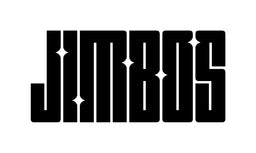Can You Apply Ceramic Coating in Direct Sunlight?
Applying a ceramic coating might seem simple—wipe on, wipe off, and enjoy the shine. But what if the only space you have is your driveway, and it’s a sunny day? Can you still apply ceramic coating in direct sunlight? The short answer: you shouldn’t. In this post, we’ll explain why sunlight causes coatings to flash too fast, how it affects durability, and what you can do to avoid mistakes that ruin your results.
Estimated Reading Time: ~12 minutes
Why Sunlight Affects Ceramic Coating Application
Ceramic coatings contain solvents that need time to “flash” (evaporate) before the layer levels and bonds properly to the paint. When panels are hot or exposed to direct sunlight, that process happens much faster than intended. The result? Uneven curing, streaks, or permanent high spots that dull your finish instead of enhancing it.
Direct sunlight can also heat your paint well over 120°F (49°C)—far above the ideal application range of 60–80°F (15–27°C). At those temps, coatings can flash in seconds, giving you no working time to level them correctly.
Problems Caused by Applying Ceramic Coating in the Sun
- → High spots and streaks: Coating flashes too fast and can’t self-level.
- → Reduced durability: Uneven bonding leaves weak or unprotected areas.
- → Trapped solvents: Rapid evaporation prevents full chemical bonding.
- → Sticky finish: Some panels stay tacky or cloudy after curing.
- → Hard-to-remove residue: High spots may require machine polishing to fix.
Ideal Conditions for Applying Ceramic Coating
For best results, apply your coating indoors or in the shade with controlled temperature and humidity. Most coatings perform best at:
- → Temperature: 60–80°F (15–27°C)
- → Humidity: 40–60%
- → Surface: Cool to the touch and clean
If you can’t avoid outdoor application, pick an early morning or evening window and work in smaller sections. Always check the surface temperature with your hand—if it’s too hot to rest your palm on comfortably, it’s too hot to coat.
Apply Smart, Not Hot
Tough As Shell Ceramic Spray is designed to handle real-world conditions and still delivers incredible gloss and protection — even when temperatures rise.
Shop Tough As Shell Buy on AmazonTips for Coating Outdoors When Shade Isn’t Available
- → Work panel by panel and immediately level after application.
- → Avoid dark paint surfaces during peak sun hours (10 AM–4 PM).
- → Use a canopy or portable detailing tent to reduce direct heat.
- → Keep towels and bottles in a shaded area to prevent product evaporation.
- → Always pre-rinse hot panels with cool water before coating.
Comparison: Shaded vs. Direct Sunlight Application
| Condition | Shaded Application | Direct Sunlight Application |
|---|---|---|
| Panel Temperature | 70°F (21°C) | 110°F+ (43°C+) |
| Working Time | 1–3 Minutes | 10–30 Seconds |
| Ease of Leveling | Smooth and forgiving | Streaks and high spots likely |
| Durability | Full rated lifespan (1–5 years) | Reduced bonding strength |
Best Products for Hot-Weather Coating
- Tough As Shell Ceramic Spray – forgiving formula for warm climates
- The Super Soaper – ideal prep soap to cool panels before coating
- Softer Than Soft Towels – safe, non-marring leveling cloths
Keep Your Coating Cool
Don’t let the sun ruin your hard work. Tough As Shell Ceramic Spray applies easily, levels cleanly, and cures evenly — even when conditions aren’t perfect.
Shop Tough As Shell Buy on AmazonRelated Reading
- How Temperature Affects Ceramic Coating Application
- How to Apply Ceramic Coating Like a Pro
- Why Ceramic Coatings Fail
- Best Ceramic Coating for Extreme Weather
- How to Fix High Spots After Ceramic Coating
FAQs
Can I apply ceramic coating under sunlight?
No — direct sunlight heats panels too quickly, causing the coating to flash unevenly and form streaks or high spots.
What’s the best temperature to apply coating outdoors?
Work between 60°F and 80°F (15–27°C) in a shaded area for best results.
What happens if I apply ceramic coating on a hot surface?
The coating will cure too fast and may bond unevenly, reducing longevity and gloss.
Can I use Tough As Shell in sunlight?
It’s more forgiving than most coatings, but you should still apply it in the shade whenever possible.
How can I cool the car surface before coating?
Rinse panels with cool water or move the vehicle into shade for 15–20 minutes before application.



